For four generations, Jim Chilton’s ranching family has worked the vast lands of southern Arizona that straddle the Mexican border, keeping the cowboy tradition alive.
But after almost 150 years, their business (and their way of life) is under threat.
The immigration crisis that has affected the United States has turned the Chilton ranch into a dangerous corridor used by hundreds, sometimes thousands, of people each month to cross illegally into the country.
84-year-old Jim’s patrols on this ranch in Arivaca, Arizona, which is three times the size of Manhattan, no longer focus solely on traditional tasks: tracking down lost livestock, caring for the land and maintaining infrastructure.
Today, he must also play the role of lookout and savior for migrants who collapse, dehydrated and exhausted, as they walk through these remote and unforgiving lands.
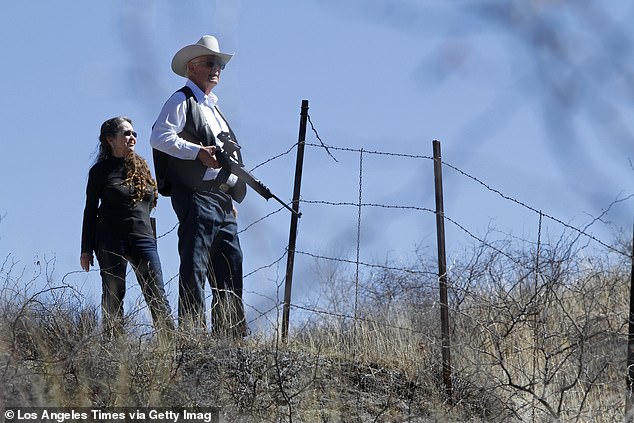
Jim Chilton, pictured with his wife Sue, holds a rifle with a telescopic sight as he surveys the land of his ranch in Arizona, which has become a corridor for thousands of immigrants entering the United States illegally.
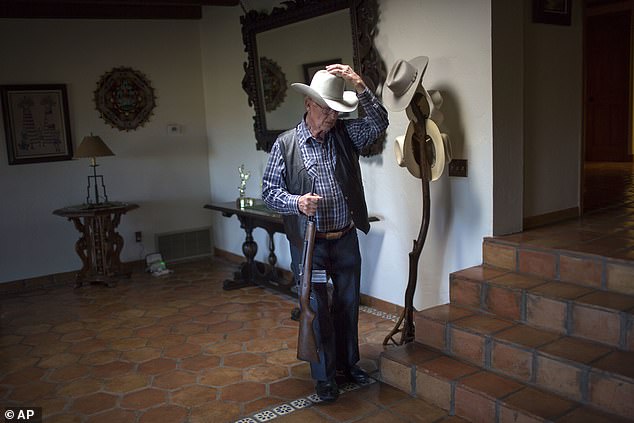

Jim’s family has owned ranches in Arizona for four decades, keeping the cowboy tradition alive, but the immigration crisis brought unprecedented challenges that threaten their business.
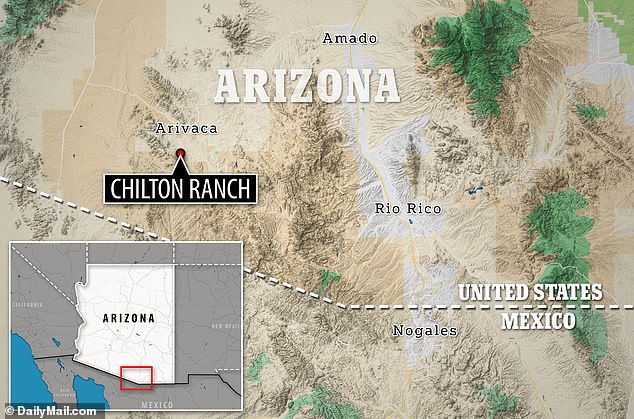

The ranch, south of Arivaca, Arizona, covers an area three times the size of Manhattan.
And, most worryingly, their work is now carried out under the gaze of armed cartel members – equipped with scoped rifles and night vision goggles – who traffic people through Chilton lands and into the United States.
“We know they’re always watching us,” Jim said of the cartel patrols that inspect their land before sending migrants across the border.
“The problem in our area has intensified tremendously in the last three years,” added Jim, who lives with his wife Sue, 81, in a roundhouse on the ranch that also serves as a 360-degree viewing point.
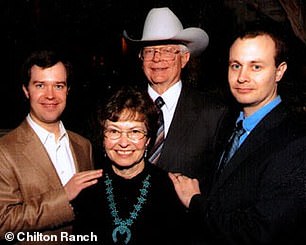

Jim with his wife Sue and their two children. The family has ranched in Arizona since the 1880s.
In December alone, around 250,000 immigrants crossed the southern border illegally. Throughout 2023, there were more than 2.5 million migrant encounters on the border between the United States and Mexico, according to official data.
Arizona’s border areas have become a critical point for crossings.
The growing problem has forced the Chiltons to testify before Congress about the impact it has on their land. Jim also campaigned in support of Donald Trump’s border wall.
The Chiltons, whose home is nine miles from the Mexican border, have discovered 150 smuggling trails across their land in recent years, along with evidence of drug smuggling.
They have installed a network of security cameras to monitor the ranch, which periodically picks up large groups of immigrants who have recently entered the United States, and have also offered to equip their team of five working cowboys.
Jim carries a gun during trips to the countryside, in part to protect himself from members of the Sinaloa cartel, one of the most dangerous criminal gangs in the world, which controls smuggling in the region.
Several years ago, a cowboy working for Jim was ambushed by smugglers who forced him to hand over 44 pounds of methamphetamine to them.
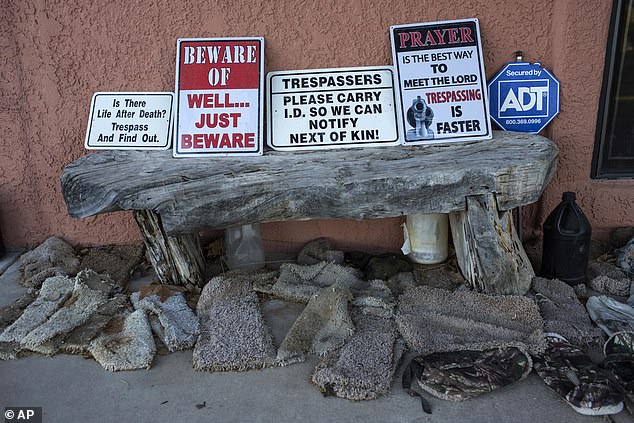

Signs warning of trespassers line a wooden bench surrounded by makeshift slip-on shoes known as “rug shoes” on the porch of the Chilton ranch. Jim, who finds the shoes abandoned on his property, says they are worn by people crossing the border illegally as a way to avoid authorities finding their prints.
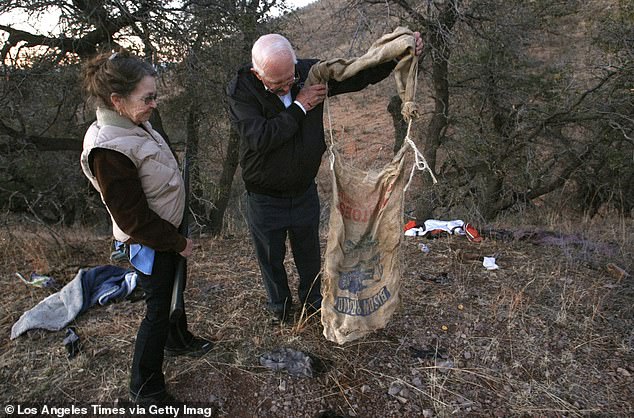

Jim and Sue Chilton look at a burlap backpack that a Mexican drug dealer dropped on their ranch. When the smuggler saw Chilton’s rifle, he dropped his backpack and fled. The Border Patrol later confiscated the marijuana that was inside.
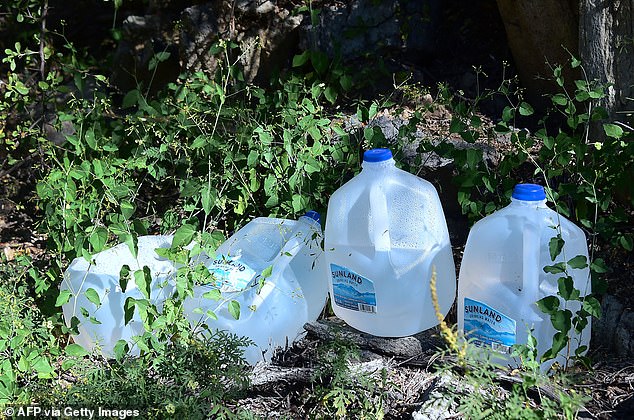

Jim is also used to finding evidence of migrant crossings, including discarded water bottles.
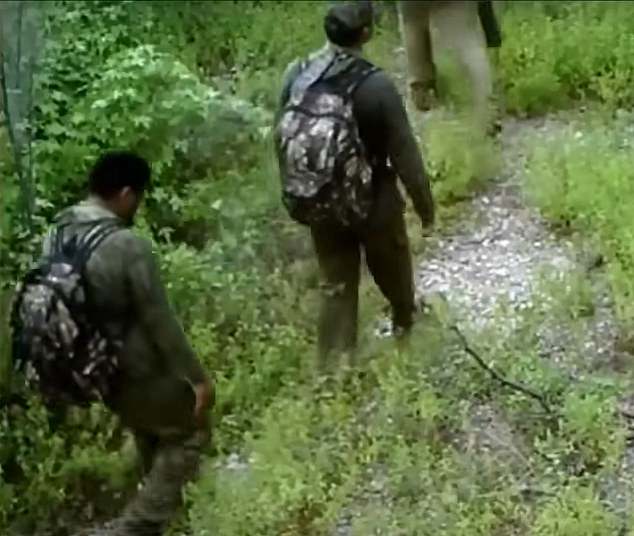

An image captured by surveillance cameras at the Chilton ranch captures a group of people who crossed illegally from Mexico
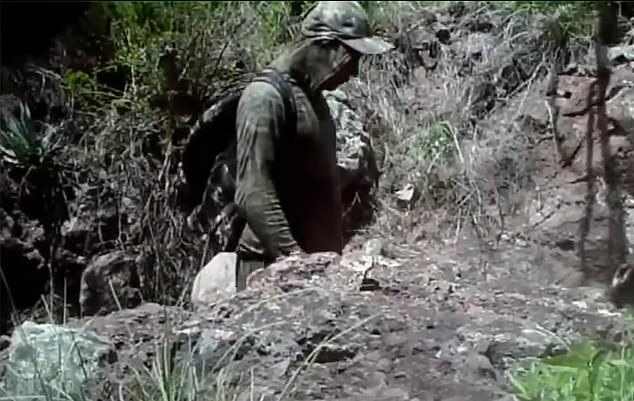

The Chiltons have placed a network of cameras around the ranch that have captured thousands of people crossing illegally from Mexico.
Also carry a satellite phone because much of the territory has little or no phone signal, a factor that also increases the dangers for those trying to cross on foot.
Jim has become accustomed to discovering the debris left behind by groups of migrants crossing the land. Empty water bottles, discarded clothes and shoes litter the paths that crisscross the landscape.
He also frequently encounters human victims of the crisis, including sick children screaming for help and dehydrated adults who have been exhausted from their journey to the United States. The Chiltons have installed several water fountains throughout the territory to try to help migrants crossing it.
“Just when you think you’ve seen it all, this place still surprises you,” Jim told the New York Times during a trip in January when they encountered a makeshift camp with dozens of migrants passing through their land.
Brian Best, 64, a volunteer aid worker from Tucson, was delivering aid to the group.
Best said that just hours earlier he had watched cartel guides lead more than 170 people through a small three-foot by three-foot opening in a stretch of border wall that separates the Chilton ranch from Mexico.
He added that he was “almost getting used to” these chaotic scenes after several years as a volunteer with the Tucson Samaritans, delivering water, first aid and clothing. Immigrants from all over the world come here, he said.
“This place breaks your heart every day,” Best said. ‘They are exhausted. They are sick. They are confused. They are cold and they just have to wait. How can this be our system?
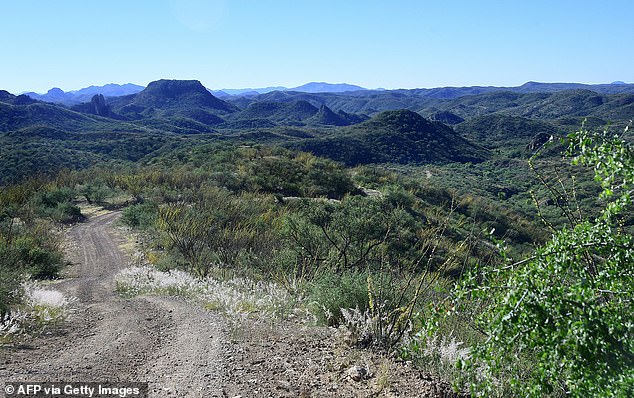

The massive ranch covers an area three times the size of Manhattan, and the unforgiving landscape makes crossing on foot a potentially lethal task.
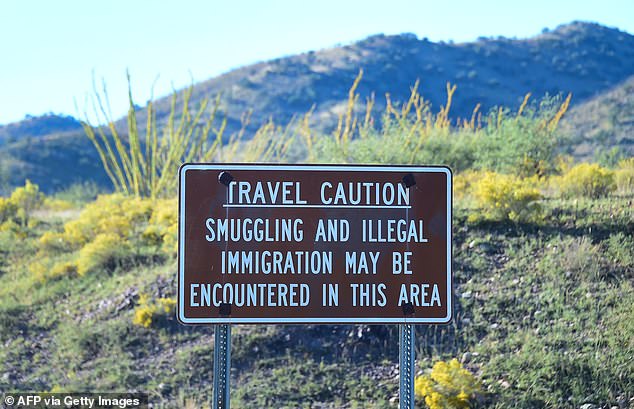

A sign is considered a warning to visitors on rancher Jim Chilton’s 50,000-acre ranch.
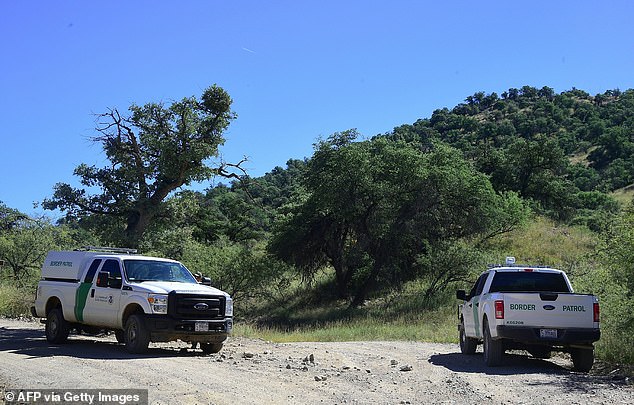

U.S. Border Patrol vehicles are seen along a highway near the U.S.-Mexico border on rancher Jim Chilton’s 50,000-acre ranch southeast of Arivaca, Arizona.


Jim Chilton with former President Donald Trump at an American Farm Bureau Federation convention
Jim added: “If I had been born in one of these places, maybe I would be sleeping here too.”
With Sue, he has campaigned for years for measures that would secure the border while creating legal pathways to asylum.
‘We are a nation of rule of law. “We need to stop people from just having the idea that they can walk into the United States,” Jim said recently. FoxNews.
‘They are entering our country unseen and they could be terrorists.
‘I’m really worried. “If our adversaries around the world want to bring terrorists into our country, this is one route.”
The Chilton family first came to Arizona in 1888 and has spent four generations working on ranches in the state.
Jim and Sue have considered selling the current ranch and moving to Tucson, or closer to their grandchildren in Los Angeles, due to a series of new and unprecedented problems.
But they have persisted here, despite their latest challenge, and remain hopeful that a solution can be found that protects their land and their way of life.
“Secure the international border and develop a program to bring people into this country legally,” Jim said.
